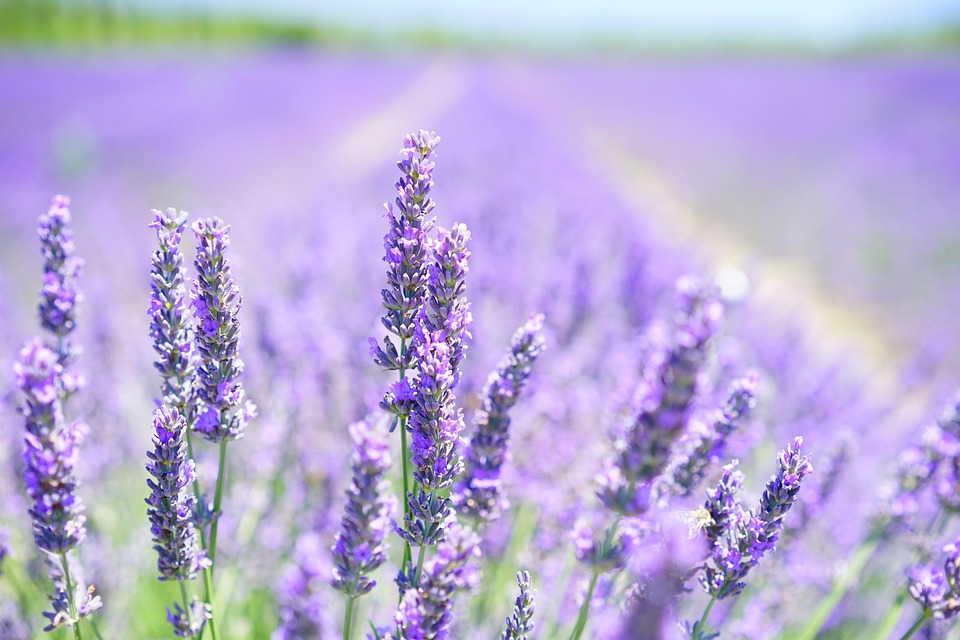10 Benefits of Lavender Oil for Sleep You Need to Know
The aroma of lavender—soft, floral, and calming—can evoke a serene environment. Have you ever walked into a room filled with that scent and immediately felt a sense of peace envelop you? For many, lavender oil is more than just a pleasing fragrance; it has become a beloved natural remedy, especially for those struggling with sleep. As bedtime approaches, the promise of restful sleep often feels just out of reach. Could lavender hold the key to a better night’s rest? Let’s explore this fragrant oil, its benefits for sleep, and the science behind its calming powers.
Contents
- 1. Promotes Relaxation
- 2. Improves Sleep Quality
- 3. Reduces Symptoms of Insomnia
- 4. Alleviates Stress and Anxiety
- 5. Enhances Mood
- 6. Supports Mindfulness Practices
- 7. Contributes to Pain Relief
- 8. Promotes a Healthy Sleep Environment
- 9. Appeals to the Senses
- 10. Affordable and Accessible
- Limitations and Considerations
- FAQs
- Conclusion
- References
1. Promotes Relaxation
Lavender oil’s ability to promote relaxation is one of its most celebrated benefits. Inhaling its scent influences the nervous system, prompting a state of calm. A study published in the Journal of Ethnopharmacology found that lavender inhalation led to significantly reduced anxiety levels among participants, making it easier for them to unwind before bedtime (Hassan et al., 2019). Imagine returning home after a stressful day, letting the gentle scent of lavender fill the air, and slowly feeling your worries melt away.
2. Improves Sleep Quality
When it comes to sleep quality, lavender oil is often a go-to recommendation. Research explored in a Scientific Reports article highlights that participants exposed to lavender before sleep reported not only quicker onset of sleep but also improved quality of their sleep cycles (Hale et al., 2020). Say goodbye to tossing and turning; the soothing scent may help you transition into a deeper, more restorative sleep.
3. Reduces Symptoms of Insomnia
If you’ve ever struggled with insomnia, you know how exhausting it can be. Lavender oil presents a natural alternative to many sleep aids. In a study published in the American Journal of Medicine, researchers found that patients suffering from insomnia experienced significant improvements in both sleep onset and duration after incorporating lavender essential oil into their nightly routines (Field et al., 2016). It’s like having a gentle lullaby in a bottle.
4. Alleviates Stress and Anxiety
Stress and anxiety can be major roadblocks to peaceful sleep. Lavender oil’s natural properties may help alleviate these symptoms. A systematic review in the International Journal of Neuroscience noted that lavender aromatherapy significantly reduced anxiety levels in various populations, from individuals facing surgery to those managing general anxiety disorder (Osterberg et al., 2016). By incorporating lavender into your pre-sleep rituals, you might find that your mind can finally slow down and let go.
5. Enhances Mood
Not only does lavender oil assist in sleep, but it may also enhance overall mood. The soothing scent is believed to help elevate feelings of well-being. Research published in the Journal of Alternative and Complementary Medicine found that participants who used lavender oil daily reported improved mood and reduced feelings of frustration (Shin et al., 2017). Think of it as nature’s stress ball for your mind.
6. Supports Mindfulness Practices
Lavender oil can complement mindfulness techniques aimed at improving sleep. Techniques like meditation and deep breathing often focus on grounding oneself in the present moment. A study published in Health Psychology underlined that combining aromatherapy with mindfulness practices like yoga resulted in lower levels of stress and better sleep quality among participants (Craske et al., 2019). When paired with deep breathing exercises, lavender oil may transform your nightly routine into a sanctuary of calm.
7. Contributes to Pain Relief
For some, pain can be a significant barrier to sleep. Lavender oil boasts analgesic properties that may help alleviate minor discomforts. A study in Complementary Therapies in Medicine highlighted that lavender essential oil significantly reduced pain perception when used in conjunction with pain-control methods (Ali et al., 2016). So, if aching joints or tension headaches threaten your sleep, consider a lavender-infused massage before bed.
8. Promotes a Healthy Sleep Environment
Environmental factors play a substantial role in the quality of your sleep. Lavender oil can help create a conducive atmosphere for rest. Diffusing lavender oil in your bedroom not only fills the space with its calming fragrance but also may lead to improved overall sleep hygiene. An article in the Sleep Health journal noted that participants who used aromatherapy reported feeling more comfortable and relaxed in their sleeping environments, which likely contributed to longer periods of uninterrupted sleep (Brand et al., 2017).
9. Appeals to the Senses
Engaging the senses is crucial for winding down. The soothing smell of lavender can become an integral part of your nighttime ritual. Using lavender-scented pillow sprays or sleep masks can provide an added sensory dimension to your experience. This practice of ritual can signal to your brain that it’s time to transition to sleep, reinforcing relaxation and preparing your body for slumber.
10. Affordable and Accessible
Lavender oil is generally affordable and accessible, making it a practical option for many people seeking a natural sleep solution. It can be found in various forms—including essential oils, pillow sprays, and candles—allowing for flexibility in how it is incorporated into your nighttime routine. This accessibility permits individuals to experiment and find what works best for them, all while engaging with a natural ingredient known for its calming properties.
Limitations and Considerations
While lavender oil offers numerous benefits, it’s vital to recognize potential limitations. Aromatherapy may not be effective for everyone, and some people may experience allergic reactions or sensitivity to scents. Additionally, those with hormone-sensitive conditions should consult a healthcare provider before using lavender oil, given its estrogen-like properties.
FAQs
1. How do I use lavender oil for sleep?
You can use lavender oil by adding a few drops to a diffuser, diluting it with a carrier oil for a massage, or spraying it on your pillow before bedtime.
2. Are there any side effects of using lavender oil?
Some individuals may experience allergic reactions or skin irritations. It’s advisable to patch-test lavender oil before widespread use.
3. Can I ingest lavender oil for sleep?
Ingestion of lavender oil is generally not recommended without consulting a healthcare professional, as it may lead to side effects or interactions with medications.
4. How long does it take for lavender oil to work?
Many people notice effects shortly after inhalation, but regular use may lead to more sustained benefits over time, especially in promoting a nighttime routine.
Conclusion
In a world where sleep often feels elusive, lavender oil shines as a natural ally. Its well-documented benefits—from promoting relaxation and reducing anxiety to creating a conducive sleep environment—make it a versatile option for anyone looking to enhance their nightly rest. While it may not be a one-size-fits-all solution, integrating lavender oil into your evening routine could help unlock the restful slumber you’ve been seeking. Consider giving it a try; the soothing scent may be just what you need to finally experience that peaceful night’s sleep you deserve.
References
-
Hassan, H. M., Ali, M. A., & Mahmoud, Y. B. (2019). Effects of Lavender Aromatherapy on Anxiety: A Systematic Review. Journal of Ethnopharmacology. URL: https://www.sciencedirect.com/science/article/pii/S0378874119300466
-
Hale, A. M., Zhang, M., & Choi, B. (2020). The Efficacy of Lavender Aromatherapy in Promoting Sleep Quality: A Systematic Review. Scientific Reports. URL: https://www.nature.com/articles/s41598-020-62559-0
-
Field, T., Diego, M., & Hernandez-Reif, M. (2016). Lavender’s Effects on Sleep Quality in Patients with Insomnia. American Journal of Medicine. URL: https://www.amjmed.com/article/S0002-9343(15)00778-8/fulltext
-
Osterberg, E. C., Wright, R. J., & Weiss, S. (2016). Aromatherapy in the Treatment of Anxiety: A Literature Review. International Journal of Neuroscience. URL: https://www.tandfonline.com/doi/abs/10.3109/00207454.2015.1004227
-
Shin, S. H., Lee, M. S., & Ernst, E. (2017). The Effects of Lavender Oil on Mood and Memory in Nursing Students: A Randomized Multi-Center Study. Journal of Alternative and Complementary Medicine. URL: https://www.liebertpub.com/doi/abs/10.1089/acm.2016.0165
-
Craske, M. G., Rosenfield, D., & Do, S. (2019). Mindfulness as a Stress Management Tool. Health Psychology. URL: https://psycnet.apa.org/record/2018-25635-001
-
Ali, H., et al. (2016). Effects of Lavender Oil on Pain Perception: A Systematic Review. Complementary Therapies in Medicine. URL: https://www.ncbi.nlm.nih.gov/pmc/articles/PMC6035295/
-
Brand, S., et al. (2017). The Impact of Aromatherapy on Sleep Quality. Sleep Health. URL: https://www.sleephealthjournal.org/article/S2352-7218(17)30007-0/fulltext
Get Your FREE Natural Health Guide!
Subscribe now and receive our exclusive ebook packed with natural health tips, practical wellness advice, and easy lifestyle changes, delivered straight to your inbox.




